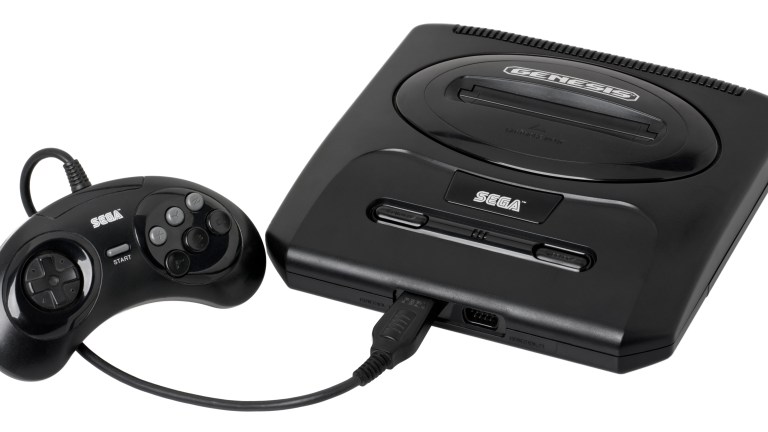The Sega Genesis Is Getting the Retro Handheld Device It Always Deserved
Hyperkin's Mega 95 device is shaping up to be the perfect celebration of all the things that make the Sega Genesis so special.

At CES 2024, retro gaming hardware developer Hyperkin revealed the Mega 95: a handheld device that will allow you to play Sega Mega Drive/Genesis cartridges. While the Mega 95 can be docked and attached to a TV via HDMI ports, the device’s biggest selling point is the ability to play authentic Genesis cartridges on the go.
While Hyperkin has not yet revealed the Mega 95’s price or release date, it’s worth noting that the company currently sells a somewhat similar device for SNES games (the SupaBoy) that retails for about $119. While the Mega 95 looks like a slightly more refined take on that basic concept, it is expected to launch at a relatively similar price.
For some, this announcement probably doesn’t seem like that big of a deal. Not only are there numerous ways to play retro Genesis games in the modern era (including Nintendo Switch Online’s premium plan), but there are other handheld devices out there that allow you to access at least the majority of the Genesis library with relative ease. Hell, Sega even took a stab at that concept way back in 1995 by releasing the ill-fated (if ahead of its time) Sega Nomad device.
However, Hyperkin has long been considered one of the best product manufacturers in this particular field. The quality of their devices is often unrivaled, and that’s especially true of the Hyperkin products that allow you to utilize original console cartridges such as the Mega 95 does. While improved digital distribution methods are an important part of video game preservation, being able to enjoy those original cartridges via improved modern means still matters.
More importantly, devices like this may help more people realize that many of the best Sega Genesis games have not only aged incredibly well but have aged well in ways that make them ideal for modern handheld gaming.
I grew up a SNES fan, and I still love much of the SNES library for one reason or another. If forced to decide, I’d probably have to agree with the popular sentiment that the SNES was the overall winner of that console war for reasons that go beyond head-to-head sales.
As time goes on and I revisit more Genesis games (or play some for the first time), though, I begin to appreciate the ways that so many of that console’s best titles represent some of the more uniquely enjoyable things about retro gaming.
That’s less of a comment on the quality of the SNES’ best games and more of an observation about the ways that so many modern titles have followed in those SNES games’ footsteps. Generations of influences aside, numerous SNES franchise games have arguably been strictly improved upon over time by Nintendo and their development partners in subsequent years. There are times when it is difficult to play through some of the biggest and best SNES titles and not see them as precursors to what would come. Most of us also only have so much time to commit to the SNES’ notable RPG epics and other surprisingly substantial titles.
By comparison, Sega’s desire to focus on arcade-like experiences for the Genesis has strangely paid off in the long run from a pure retro gaming perspective. There are not enough major modern titles that follow in the footsteps of games like Gunstar Heroes, Streets of Rage 2, and Shinobi III. Even some of the better modern games that do pay tribute to those titles sometimes struggle to match or surpass them.
The pickup, play, and put-down nature of so many of those incredible Genesis titles not only helps them stand apart from modern games that often require a credit card and a small life commitment, but it ensures that they work especially well as modern handheld gaming experiences. While devices like the Nintendo Switch and Steam Deck often advertise their abilities to allow you to play Triple-A games on the go, more and more people are discovering the joys of using those devices to play the kind of smaller, more purely pleasurable experiences that the Genesis once excelled at providing.
No, you don’t need a Mega 95 to lay many of those games today. Even still, that device is shaping up to be not just one of the best ways to experience the authentic versions of those games but a celebration of pickup-and-play retro pleasures that should define the Genesis library in the modern era.
